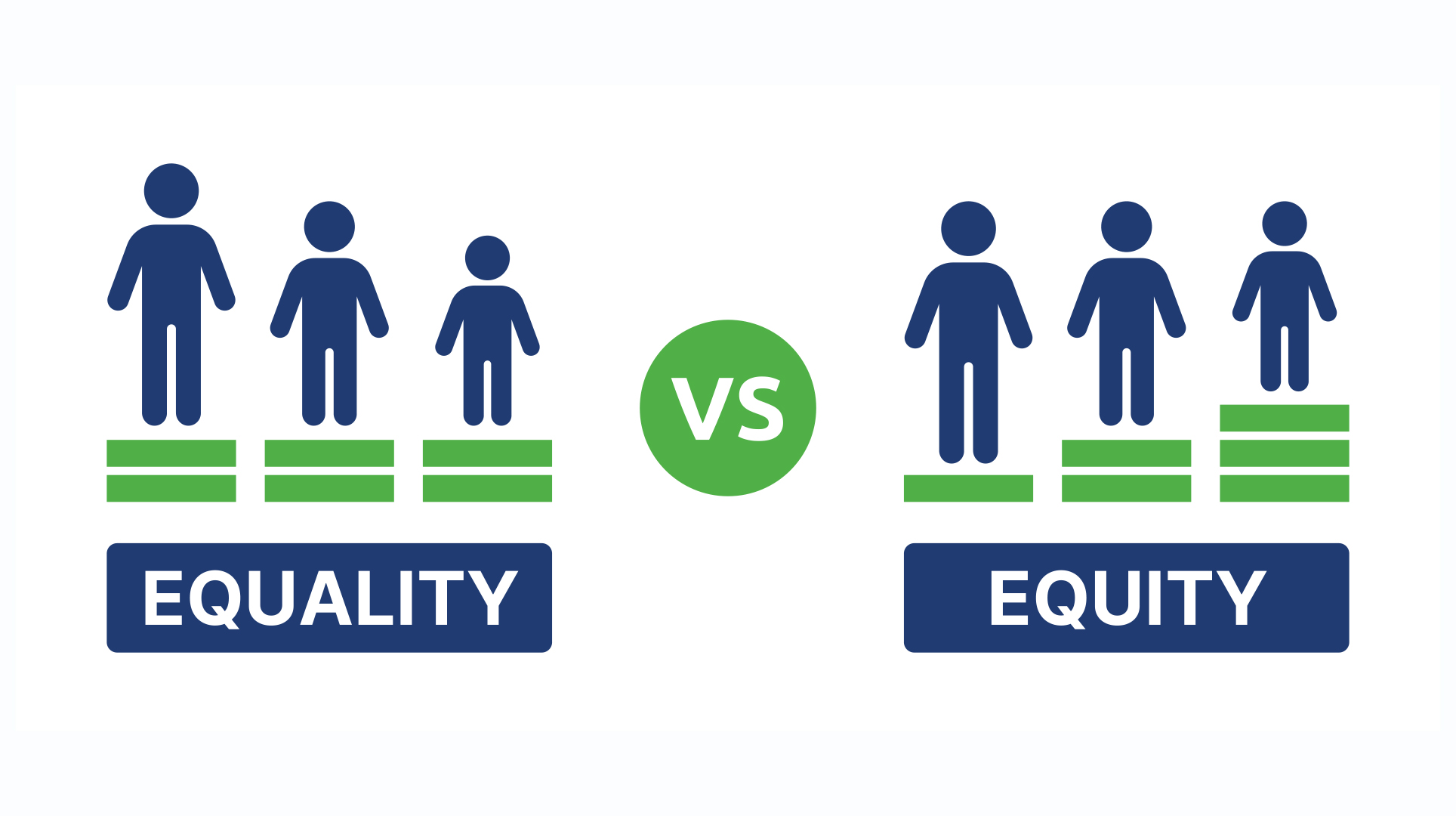Equity vs. Equality: An Eternal Perspective

Inequity traces its roots back to the pre-mortal realm, and it appears destined to endure throughout eternity.
Any system that allows for individual achievement and freedom of choice will invariably yield disparities among its participants. Paradoxically, this is not a flaw; rather, it is one of the fundamental aspects of our humanity.
Our uniqueness, the fact that no two individuals are exactly alike, ensures that our responses within complex systems, such as education, employment, parenting, or life in general, will vary significantly.
Nevertheless, our society, including certain groups within the church, is increasingly fixated on achieving equity. This reaction is understandable given the glaring disparities in living standards between the wealthy and impoverished.
The impulse to identify inequality around us or to rectify unjust systems seems commendable and it can indeed be a noble pursuit … as long as it respects the agency of others.
For this exact reason, God gave Joseph Smith the revelation of D&C 78 regarding the creation of the Bishop’s storehouse.
“For if ye are not equal in earthly things ye cannot be equal in obtaining heavenly things”
People often point to the similarities between communism and the law of consecration, but they usually overlook one crucial concept. The law of consecration is completely voluntary for each individual to enter into. Agency is maintained and this is a crucial difference.
Consider an example from the pre-mortal realm.
In the grand council in heaven, God presented His plan for us to come to Earth, obtain physical bodies, and ultimately return to Him. This divine plan required a Savior who would make returning back to God possible.
Satan, perceiving that this plan might result in unequal outcomes, proposed an amendment: he would ensure that not a single soul would be lost—a seemingly perfectly equitable outcome. He also required, and perhaps for tyrannical purposes, the glory of God. After all, equal outcomes (equity) require force.
On the surface, this proposal might seem appealing. Who wouldn't want a plan guaranteeing the salvation of all God's children?
In fact, Satan’s argument was so appealing that one-third of God’s children decided to follow him, after all, it seemed like the most equitable plan.
However, the issue arises when we learn that Satan's method for achieving this involved depriving us of our agency—an agency that God holds sacred above all else. And an absolute necessity for Exaltation and “becoming.”
God understood that genuine progression towards becoming more like Him necessitated the use of agency, and the natural consequence of this would be variations in outcomes among His children.

Moreover, we discover that Satan's true motivation for assisting our return was rooted in his desire to usurp God's glory for himself. He saw that God possessed intelligence, power, and glory beyond his reach, and he coveted it for himself.
Satan cared little for our eternal salvation, as evidenced by his actions after losing the war in heaven when he sought to lead as many of God's children astray as possible.
Today, we witness the full manifestation of Satan's true intentions.
Satan’s story seems a fitting example of what we are seeing by today’s leading proponents of critical social justice - people who are fighting for equity and for the dismantling of systems that produce inequality all in the name of helping others.
Yet the solutions these leaders propose repeatedly come at the expense of other’s freedoms and often their motivations for advocacy turn out to actually be their own personal benefit, whether it be socially, financially, or even just so they can feel morally superior to others.
We see this in the writings and teachings of those most responsible for the disciplines of Critical Social Justice. In the United States for example, they want to tear down the Constitution that offers “equal” and universal opportunities and replace it with laws that would give more opportunities to certain groups and less to others.
Now, let's explore another pre-mortal example that again highlights the true nature of agency, progression, and divergence.
In Abraham 3, Abraham experiences a vision while using the Urim and Thummim. In this vision, God reveals His creations and imparts knowledge about the hierarchy of stars, planets, and more.
Most intriguingly, God employs these astronomical elements as an analogy for the hierarchy of spirits. (I also touched on this scriptural passage in a recent podcast that you can listen to HERE.)
“These two facts do exist, that there are two spirits, one being more intelligent than the other; there shall be another more intelligent than they; I am the Lord thy God, I am more intelligent than they all.”
God makes two pivotal statements in this verse:
1. When two spirits coexist, they will not possess identical levels of intelligence; one will invariably surpass the other.
2. God, as the most intelligent, surpasses all other spirits.
The concept that our spirits were not equal in intelligence and that God holds the highest intelligence is profound. This insight highlights the inherent differences among spirits (achieved through obedience), dispelling the notion of uniformity.
Abraham was privy to a profound revelation, witnessing the existence of noble and great intelligences organized before the world's inception.
God recognized the inherent goodness in these souls and declared His intention to appoint them as rulers. Standing among these spirits, God personally conveyed to Abraham that he was among the chosen ones, predestined for this role even before his earthly birth.
This is inequity. Yet is it unfair? The equality of God offers fair opportunities, not forced outcomes.
We each have our agency to follow God’s commandments and directions, to learn and to grow. Those who did this more faithfully would naturally progress quicker than those who were less strict in their obedience.
It shows us where our focus/prioirties should be, namely on improving ourselves and following God, not on trying to pull others down in order to create an artificial uniformity.
Best,
Greg Matsen





